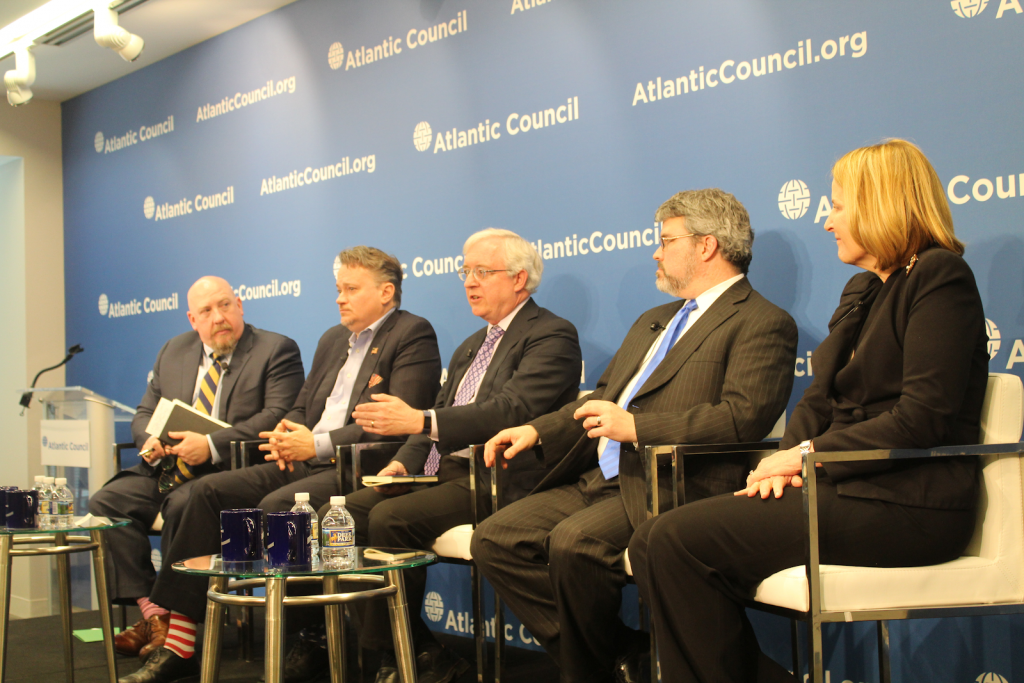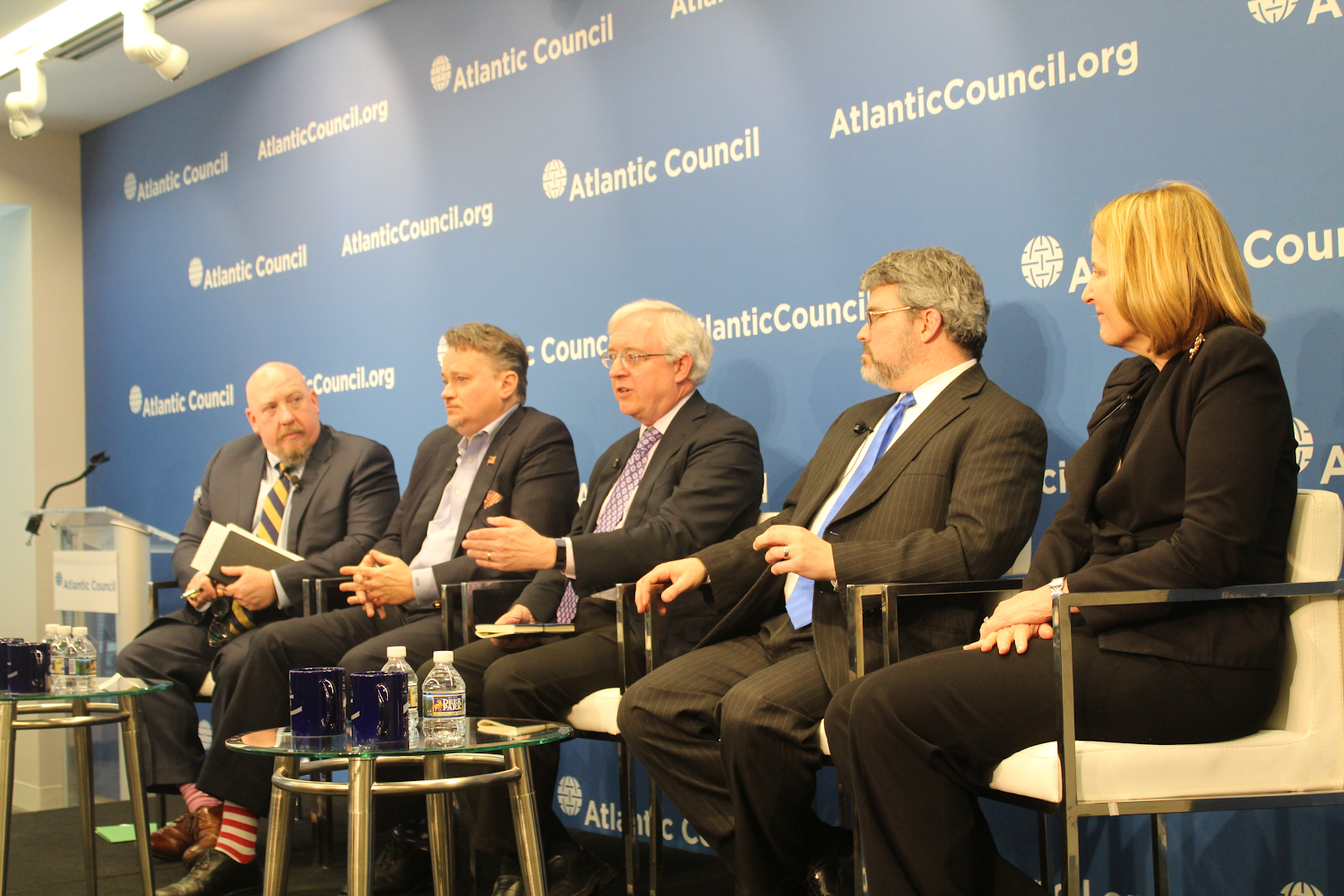
On March 25th, 2019, the Atlantic Council Global Energy Center, the American Security Project, and the Center for Climate and Security hosted a conversation on climate change as a national security threat and the need for objective science to inform decision making. The White House’s announcement of a National Security Council (NSC) panel to reassess the 2018 National Climate Review (NCR) set the context for the afternoon. Global Energy Center Senior Fellow Joe Bryan and Center for Climate and Security Co-Founder Caitlin Werrell provided introductory and welcoming remarks, with both emphasizing the dangers of politicizing science, especially as it pertains to evidence based threat assessments.
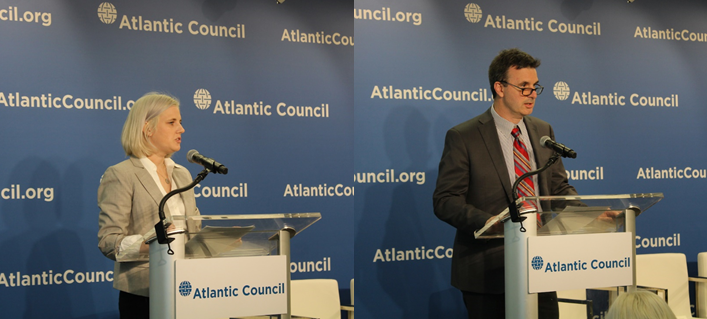
(L to R) Council on Strategic Risks’ Caitlin Werrell introduces the speakers; Global Energy Center Senior Fellow Joe Bryan delivering opening remarks.
Captain James C. Goudreau, US Navy (Ret.), former deputy assistant secretary of the Navy for energy, moderated the discussion. He began by introducing the speakers and asking for a quick framing of the discussion from each panelist. George David Banks, executive vice president of the American Council on Capital Formation and former special assistant for international energy and environment at the National Economic and National Security Councils in the Trump administration, stated that a clear understanding of the science is vital and agreed that climate change has a direct impact on national security. Rear Admiral David Titley, director of the Center for Solutions to Weather and Climate Risk at Pennsylvania State University, argued that climate change is not a threat, but rather a major risk that must be assessed with preemptive management and current scientific data. John Conger, director of the Center for Climate and Security and former principal deputy undersecretary of defense at the US Department of Defense (DOD) , explained that the DOD perspective focuses on climate impacting “mission”—if science is skewed, military assessments will be inaccurate and potentially dangerous. Finally, Alice Hill, research fellow at the Hoover Institute and former special assistant to the president and senior director for resilience policy on the NSC, stated that the United States is a clear outlier in addressing climate change, and that immediate attention is necessary, lest we damage our position as a major leader.
After introductions, the process of drafting the NCR and its influence on institutions was discussed, with a consensus reached that it holds significant scientific accuracy and policy influence. According to Hill, there was consensus throughout the government in 2016 to accept the threat of climate change, with President Obama signing an order dictating that all agencies and intelligence analyses take current, accurate science into account. While President Trump repealed this shortly after taking office, Banks emphasized that climate science is still core to NSC discussions, and stated that he believed that a reassessment of climate science, which would most likely come in the form of a Federal Advisory Committee Act (FACA), would be done in a transparent, balanced manner. Although he expressed skepticism that this would actually end up occuring, due to the long processing time required for FACAs.
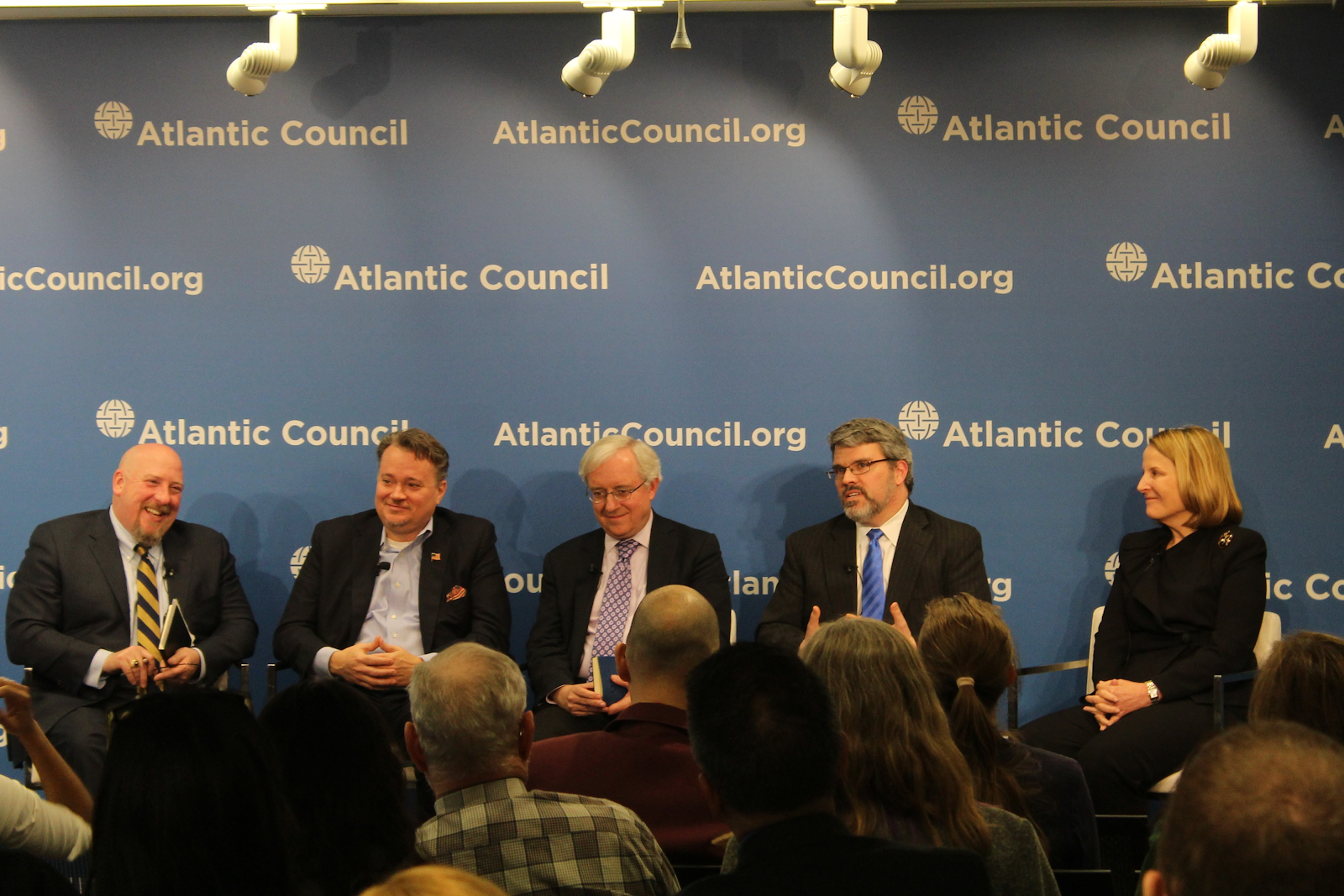 (L to R) Former Acting Deputy Assistant Secretary of Energy James C. Goudreau moderates speakers David Banks of the American Council on Capital Formation, David Titley of the Center for Solutions to Weather and Climate Risk, John Conger of the Center for Climate and Security, and Alice Hill, Research Fellow at The Hoover Institute.
(L to R) Former Acting Deputy Assistant Secretary of Energy James C. Goudreau moderates speakers David Banks of the American Council on Capital Formation, David Titley of the Center for Solutions to Weather and Climate Risk, John Conger of the Center for Climate and Security, and Alice Hill, Research Fellow at The Hoover Institute.
Citing the multiple cycles of peer reviewed assessments, including by the National Academy of Science, that occured when drafting the NCR, Titley argued that any reassessment was redundant and could be detrimental to climate science. Hill agreed, reinforcing this argument by highlighting both the current lack of action and the extremely time-sensitive nature of climate change, stating that “climate assessment is not policy” and should not be treated as such. In the Federal Emergency Management Agency’s five year plan, there is no mention of climate change, and the National Security Strategy omits any discussion on the issue. Omitting any mention of climate science from vital, official government document sets a dangerous precedent for science denial, leading to potentially life threatening and costly, preventable disasters in the future.
Goudreau shifted the discussion to tangible national security risks. From a military stance, the various unique problems introduced by climate change pose an interesting problem; rising sea levels lead to heavier rains, extreme weather events, and increased flooding, so where should the military focus its attention? Tyndall Air Force Base in Florida, decimated by Hurricane Michael, and Offutt Air Force Base in Nebraska, flooded in March, are clear examples of poor risk management contributing to a failure to secure important military assets. Conger believes the best solution to manage these risks is to use accurate scientific data to reinforce bases. Even with secure infrastructure, rising temperatures can affect the takeoff abilities of planes and the use of live fire ammunition, directly impeding DOD missions. Additionally, Conger discussed assistance in humanitarian cases abroad, which would increase with extreme weather and requires additional costly training not included in typical combat training.
Questions from the audience raised concerns of impacts on relationships abroad and general discussions among leadership. Banks believes that the developing world approves of our energy policy, as natural gas and oil are necessary until renewables can be implemented on a wider scale, but there is a clear questioning of American leadership on climate issues. While political leaders abroad are wondering what America is doing to decrease emissions and mitigate the risks of climate change, leaders in the United States are wondering where to start. Extreme weather events are increasing in frequency, giving less time to deal with the multi-billion dollar infrastructure strikes the military is already dealing with before the next cycle begins.
To conclude the discussion, Goudreau asked for a general plan on what we can do to improve climate science acceptance. While there has a been a sharp increase in environmental awareness in recent months, the speakers agreed that having people in leadership positions who both know what they’re doing and do the job they’re assigned is the best course of action for the future. Andrew Holland, chief operating officer of the American Security Project, ended the event by thanking the speakers and discussing the American Security Project and The Center for Climate and Security’s recent letter urging the current White House administration to drop the politics and accept current climate assessments, which was signed by fifty-eight former intelligence, military, and national security leaders.
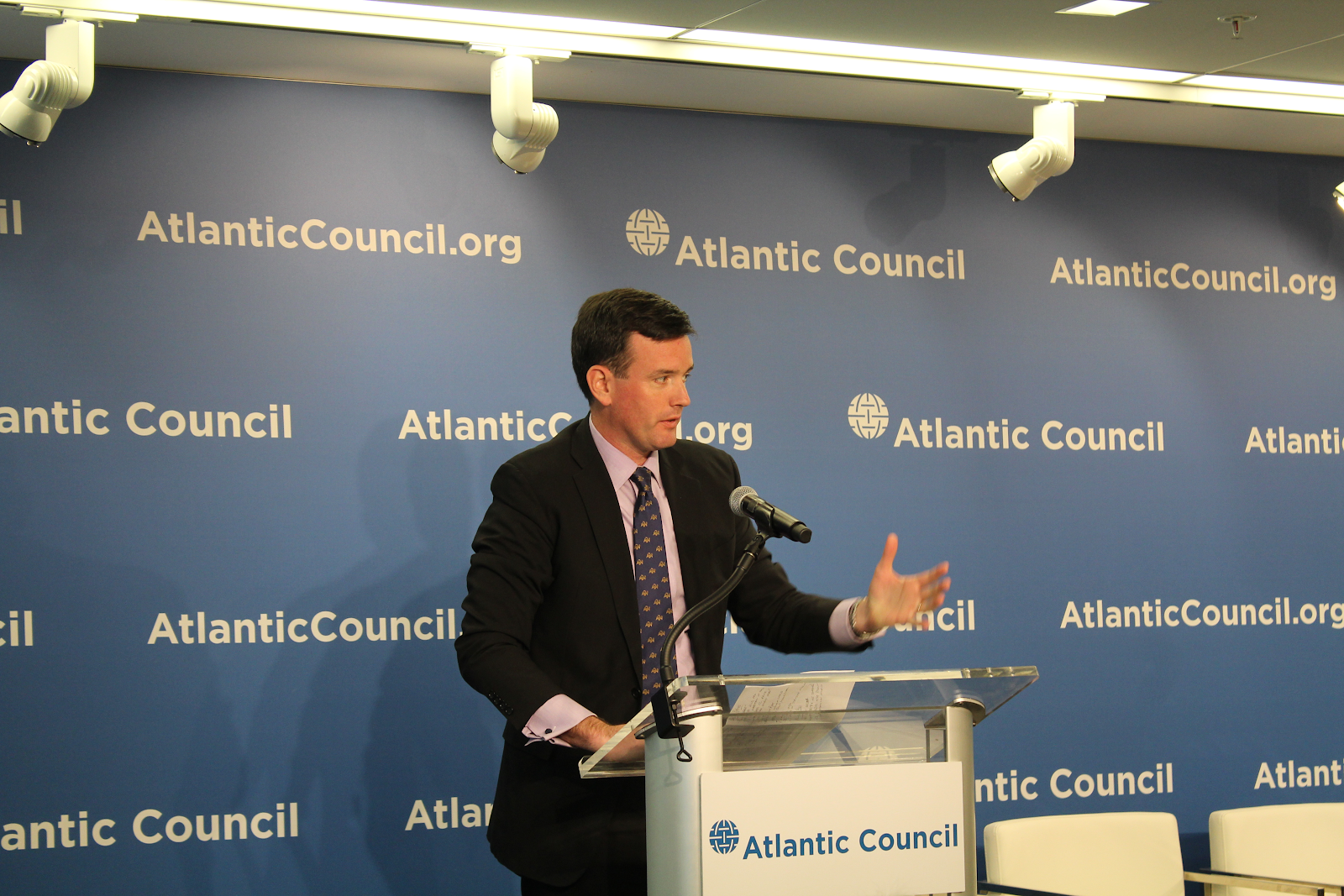 Andrew Holland, CEO of the American Security Project, gives closing remarks.
Andrew Holland, CEO of the American Security Project, gives closing remarks.
Watch the webcast of the event here.
Image: (L to R) James C. Goudreau, David Banks, David Titley, John Conger, and Alice Hill.
